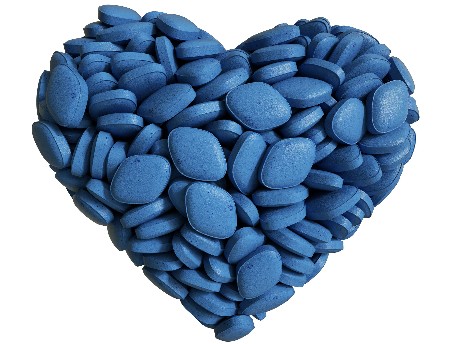Dating a drug addict can be a challenging and emotional experience. Addiction is a complex issue that affects not only the individual but also their loved ones. When dating someone with a drug addiction, it is important to understand the nature of addiction and its impact on relationships.
Drug addiction is a chronic disease that affects the brain and behavior of an individual. It is characterized by compulsive drug seeking and use despite the harmful consequences. Addiction can take a toll on personal relationships, leading to trust issues, financial problems, and emotional instability. Understanding drug addiction is crucial in developing a healthy and supportive relationship with a partner struggling with addiction.
Dating a drug addict can be a rollercoaster ride, with ups and downs that can be emotionally draining. It is important to recognize the signs of drug addiction in a partner and be aware of the challenges that come with dating an addict. However, with the right support and resources, it is possible to build a strong and lasting relationship with a partner in recovery.
Key Takeaways
- Understanding drug addiction is crucial in developing a healthy and supportive relationship with a partner struggling with addiction.
- Recognizing the signs of drug addiction in a partner is important in navigating the challenges that come with dating an addict.
- With the right support and resources, it is possible to build a strong and lasting relationship with a partner in recovery.
Understanding Drug Addiction
Drug addiction, also known as substance use disorder, is a chronic and relapsing disease that affects a person's cognitive function and behavior. It is characterized by the compulsive use of drugs despite the harmful consequences they may cause. Addiction can happen to anyone, regardless of their age, gender, or social status.
Drug addiction is a complex disease that involves both physical and psychological dependence. When a person misuses drugs, they experience a rush of euphoria, which is followed by a crash and intense cravings for more. Over time, the body becomes tolerant to the drug, and the person requires higher doses to achieve the same effects. This can lead to risky behavior, such as driving under the influence or engaging in unsafe sex.
The symptoms of drug addiction can vary depending on the type of drug being used. Some common signs of addiction include:
- Bloodshot eyes and dilated or constricted pupils
- Sudden weight changes
- Slurred speech, tremors, or shakes
- Personality changes
- Frequent accidents or injuries
Drug addiction can also cause a range of side effects, such as nausea, vomiting, dizziness, and headaches. In severe cases, it can lead to overdose and death.
Rehab options for drug addiction include detoxification, medication-assisted treatment, behavioral therapy, and support groups. It is essential to seek professional help when dealing with drug addiction, as it can be difficult to overcome without proper treatment.
Understanding drug addiction is crucial for anyone who is dating a person with addiction. It is essential to acknowledge that addiction is a disease and not a choice. By providing support and understanding, it is possible to help a person with addiction achieve recovery and lead a fulfilling life.
Recognizing Signs of Drug Addiction
When dating someone, it's important to pay attention to their behavior and look for any warning signs of drug addiction. Some of the most common signs of drug addiction include lying, mood swings, erratic behavior, and drug abuse.
Drug addiction can take a toll on a person's physical and mental health, causing weight loss, flushed skin, insomnia, headaches, skin problems, blackouts, memory loss, motor skill impairment, and unexplained injuries. Additionally, drug addicts may exhibit secretive behavior, such as hiding drug paraphernalia or being evasive about their whereabouts.
Physical signs of drug addiction can include a husky voice, trembling hands, and track marks on the arms or legs. If a person is using drugs intravenously, they may develop infections or abscesses at the injection site.
It's important to note that not all drug use is indicative of addiction. Recreational use of drugs, such as smoking marijuana on occasion, does not necessarily mean a person is addicted to drugs. However, if drug use becomes more frequent and begins to interfere with a person's daily life, it may be a sign of addiction.
If a person suspects that their partner is struggling with drug addiction, it's important to approach the situation with care and compassion. Encourage them to seek professional help and offer to support them through the recovery process.
The Impact of Dating a Drug Addict
Dating a drug addict can be a challenging experience that can have a significant impact on a person's life. Relationships with individuals who struggle with addiction can be complicated and emotionally draining. It can be difficult to trust and rely on someone who is struggling with addiction, which can cause stress and anxiety for the romantic partner.
Drug addiction can affect a person's behavior and emotional well-being, which can have a direct impact on their romantic partner. Behavioral signs of addiction can include neglecting family, unexplained absences, new friends, less social, avoiding people, and routine changes. These changes can be alarming for the partner, who may not understand what is happening or why their loved one is acting differently.
One of the most significant impacts of dating a drug addict is financial. Drug addiction can lead to stealing money, losing money, and neglecting financial responsibilities. This can cause significant stress and strain on the romantic partner, who may have to bear the financial burden alone.
Dating a drug addict can also take a toll on a person's emotional well-being. The partner may experience depression, anxiety, and other mental health issues as a result of their loved one's addiction. It can be challenging to watch someone you care about struggle with addiction, and it can be even more challenging to support them through their recovery.
In conclusion, dating a drug addict can have a significant impact on a person's life. It is essential to be aware of the signs of addiction and to seek help if necessary. If you suspect that your partner is struggling with addiction, it is crucial to address the issue and seek professional help. With the right support and resources, it is possible to overcome addiction and build a healthy and fulfilling relationship.
Challenges in a Relationship with an Addict
Dating an addict can be a challenging experience. Addiction can cause a significant strain on a relationship, and it can be difficult to navigate the ups and downs that come with it. Here are some of the challenges that may arise in a relationship with an addict:
Boundaries
Setting boundaries is essential in any healthy relationship, but it is especially important when dating an addict. Boundaries help both partners understand what is acceptable and what is not. However, setting boundaries can be difficult when dealing with addiction. The addict may push back against boundaries, or they may be unable to respect them due to their addiction.
Relapse
Relapse is a common occurrence in addiction recovery, and it can be a significant challenge for a relationship with an addict. Relapse can cause a great deal of stress and anxiety for both partners, and it can be challenging to know how to support the addict during this time.
Codependency
Codependency is a common issue in relationships with addicts. Codependency occurs when one partner enables the addict's behavior, neglecting their own needs and responsibilities in the process. This can lead to an unhealthy dynamic in the relationship, with the non-addict partner taking on too much responsibility and the addict not taking responsibility for their actions.
Enabling Behavior
Enabling behavior is another common challenge in relationships with addicts. Enabling behavior occurs when the non-addict partner allows the addict to continue their behavior without consequence. This can include providing financial support, covering up for the addict, or making excuses for their behavior.
Neglecting Responsibilities
Addiction can cause the addict to neglect their responsibilities, such as work, family, and personal obligations. This can put a strain on the relationship, as the non-addict partner may end up taking on more responsibility than they can handle.
Breaking Up
Breaking up with an addict can be challenging, especially if the non-addict partner is deeply invested in the relationship. It can be difficult to know when to end the relationship, and how to do so in a way that is healthy and respectful for both partners.
Despite the challenges, it is possible to have a healthy relationship with an addict. It takes patience, understanding, and a willingness to work through the challenges that arise. With the right support and resources, there is hope for a successful relationship with an addict in recovery.
Supporting a Partner in Recovery
Dating someone in recovery from addiction can be challenging for both partners, but it is possible to have a healthy and fulfilling relationship with the right support. Here are some tips for supporting a partner in recovery:
Acknowledge the Recovery Journey
It's essential to acknowledge that recovery is a journey, and it's not always easy. Your partner may experience setbacks and struggles, and it's important to be patient and understanding. Celebrate their successes and be there for them when they need support.
Encourage Treatment
If your partner is not already in a treatment program, encourage them to seek help. Addiction treatment programs can provide the necessary tools and support for a successful recovery. There are many different treatment options available, including therapy, counseling, and rehab programs. Encourage your partner to find a treatment program that works for them.
Set Boundaries
It's important to set boundaries in any relationship, but especially when dating someone in recovery from addiction. Make sure you communicate your needs and expectations clearly. For example, you may need to avoid certain triggers or situations that could lead to relapse. Be supportive, but also make sure you take care of yourself.
Attend Support Groups
Support groups can be a valuable resource for both partners. Consider attending meetings together, such as Al-Anon or Nar-Anon. These groups provide a safe and supportive environment where you can connect with others who are also affected by addiction.
Practice Self-Care
Taking care of yourself is crucial when dating someone in recovery from addiction. Make sure you have a support system of your own, and take time to do things that make you happy. It's easy to get caught up in your partner's recovery journey, but remember to prioritize your own well-being as well.
Supporting a partner in recovery from addiction can be challenging, but with the right tools and resources, it is possible to have a healthy and fulfilling relationship. Encourage your partner to seek treatment, communicate openly and honestly, set boundaries, attend support groups, and practice self-care.
Frequently Asked Questions
How can I support my partner in their addiction recovery?
Supporting a partner in addiction recovery can be challenging, but it is important to let them know that you are there for them. Encourage them to seek professional help and attend support group meetings. Be patient and understanding, and avoid enabling their addiction. Remember to take care of yourself as well.
What are some warning signs of drug addiction?
Some warning signs of drug addiction include changes in behavior, mood swings, neglecting responsibilities, financial problems, and physical changes. If you suspect that your partner is struggling with addiction, it is important to address the issue and seek professional help.
How can I set healthy boundaries in a relationship with a recovering addict?
Setting healthy boundaries is important in any relationship, but it is especially important when one partner is in addiction recovery. Be clear about your expectations and communicate openly with your partner. Avoid enabling their addiction and prioritize your own well-being.
What are some common triggers for relapse and how can I help prevent them?
Common triggers for relapse include stress, social situations, and negative emotions. To help prevent relapse, encourage your partner to develop healthy coping mechanisms, such as exercise, meditation, or therapy. Avoid exposing them to triggers and be supportive during difficult times.
What role should I play in my partner's recovery journey?
The role you play in your partner's recovery journey will depend on their individual needs and circumstances. It is important to be supportive and encourage them to seek professional help. Avoid controlling their recovery process and prioritize your own well-being.
How can I take care of myself while supporting a partner in addiction recovery?
Taking care of yourself is essential when supporting a partner in addiction recovery. Set aside time for self-care activities, such as exercise, hobbies, or spending time with friends. Seek support from others and avoid neglecting your own needs. Remember that you cannot control your partner's recovery journey and prioritize your own well-being.





























